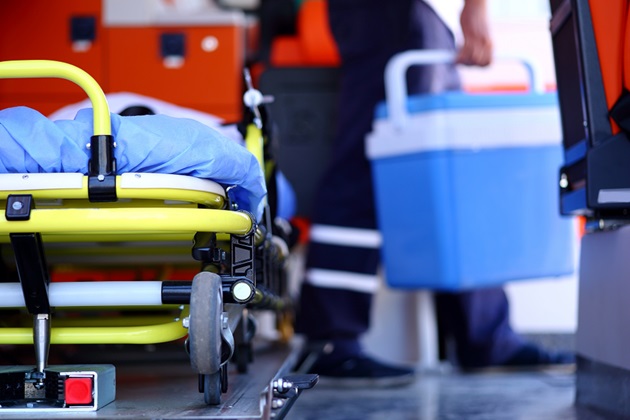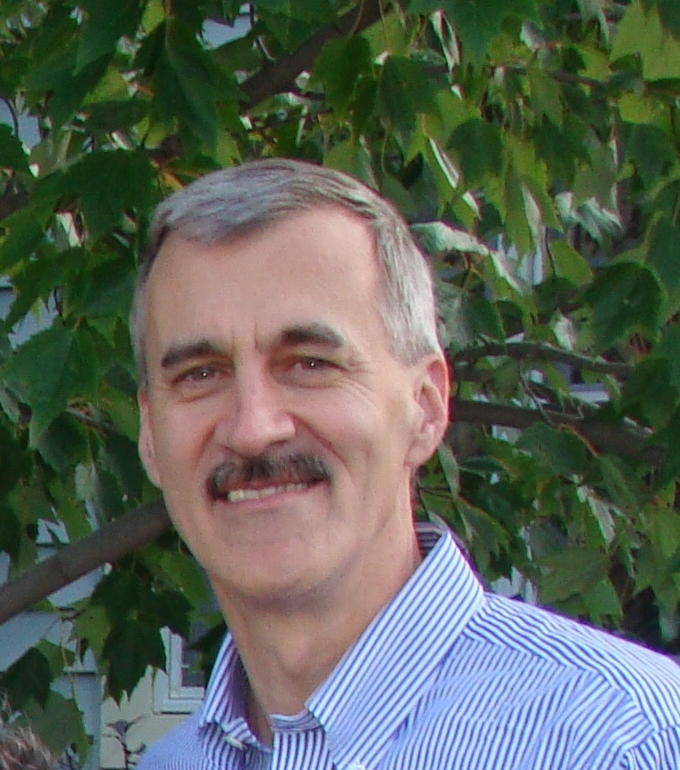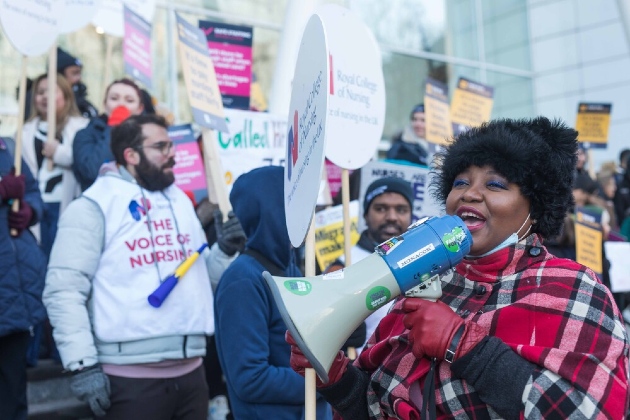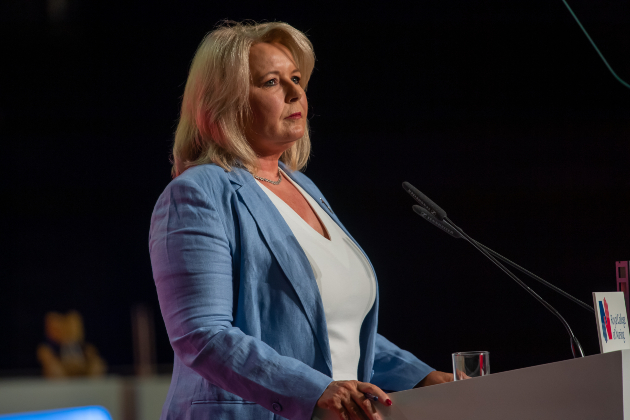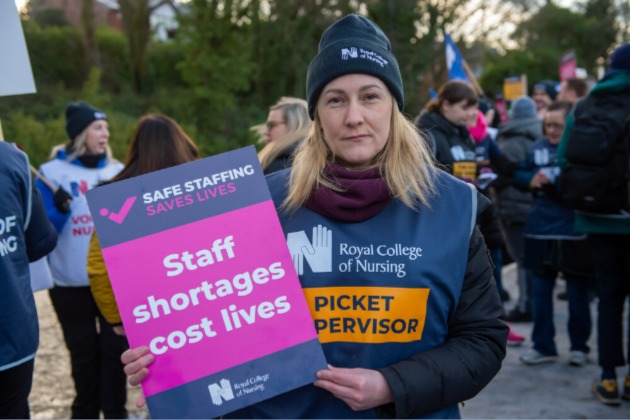There’s been a major incident on one of Britain’s motorways. Several vehicles are involved and many people are injured, some of them, as it will later turn out, fatally. In another part of the country, someone has been desperately waiting for a heart transplant, struggling to get on with the simplest of tasks in their daily lives. They get a call in the middle of the night. The voice on the other end, familiar and calming: “We’ve found you a heart.”
Although this reads like a scene from a hospital television drama, this is a real situation for RCN members Becky Evans and Sadie Von Joel, working at both ends of the organ donation spectrum.
It's an honour to do what I do
As a specialist nurse requestor in the Midlands organ donation and transplant team, Becky (pictured below) meets families at a very emotional time when a loved one is in critical care and not expected to recover. It’s her job to speak to relatives about organ donation and support them through that process.
“We’re there for the conversation about the end of a person’s life, which is not always expected. Even when a family has been told their loved one will not survive, they’re not always in acceptance of this.”
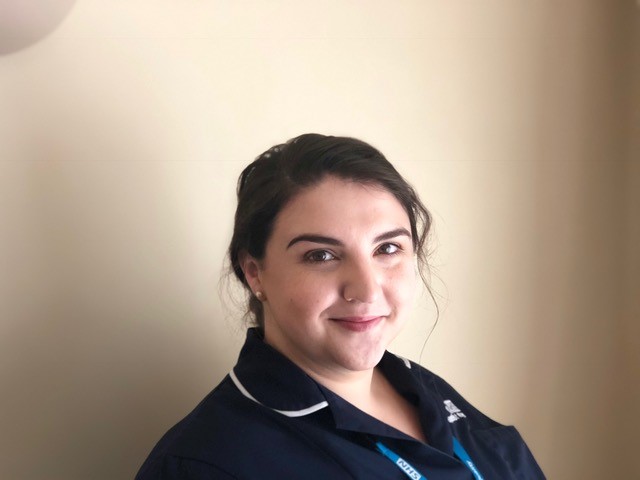
Becky gives advice on options should the family decide they would like to donate organs or if it was the patient’s decision. “The organ donation register means that someone has expressed their own wish, should the worst happen. But there is always a conversation to be had with the family and we would want the family to support their loved one to be an organ donor. Unfortunately, some families don’t feel they can support this decision and do override it.”
Giving back control
Around 36% of people are signed up to the organ donation register, but only 1% of the population die in such a way that they can donate.
“I’m extremely fortunate to have the skills to provide support at such a devastating time, and giving the family options for organ donation puts some control back in their hands,” says Becky.
Once it’s been decided that someone is able to become a donor, Becky carries out the necessary consent paperwork and tests to check blood and tissue type. “This is a lengthy process, sometimes over 24 hours,” she says. “There are a lot of phone calls, finding out the medical history from the family, what sort of a person they were and their lifestyle.”
Becky and her team are with the families through the whole process from when someone’s treatment in critical care has come to an end to when they have completed the donation. “We do keep in touch with the families and send letters to thank them for allowing their loved one to donate, explaining how they’ve helped others. It’s an honour to do what I do.”
Special moment
Last year more than 450 people died waiting for an organ transplant in the UK and there are currently around 6,500 people waiting for a transplant.
Sadie Von Joel (pictured above) is a transplant co-ordinator at the Royal Papworth Hospital in Cambridgeshire, one of the largest heart and lung transplant centres in Europe. Sadie is part of the team that assesses whether people are eligible for a transplant and is the link between the donor hospital and the recipient.
“It’s a very special moment when you tell someone a transplant will go ahead,” she says. “You’ve built up a rapport with this person, got to know their families and know what a difference this will mean for their lives. We take for granted things like tying our shoelaces or taking a shower, tasks that can be near on impossible for someone waiting for a transplant.”
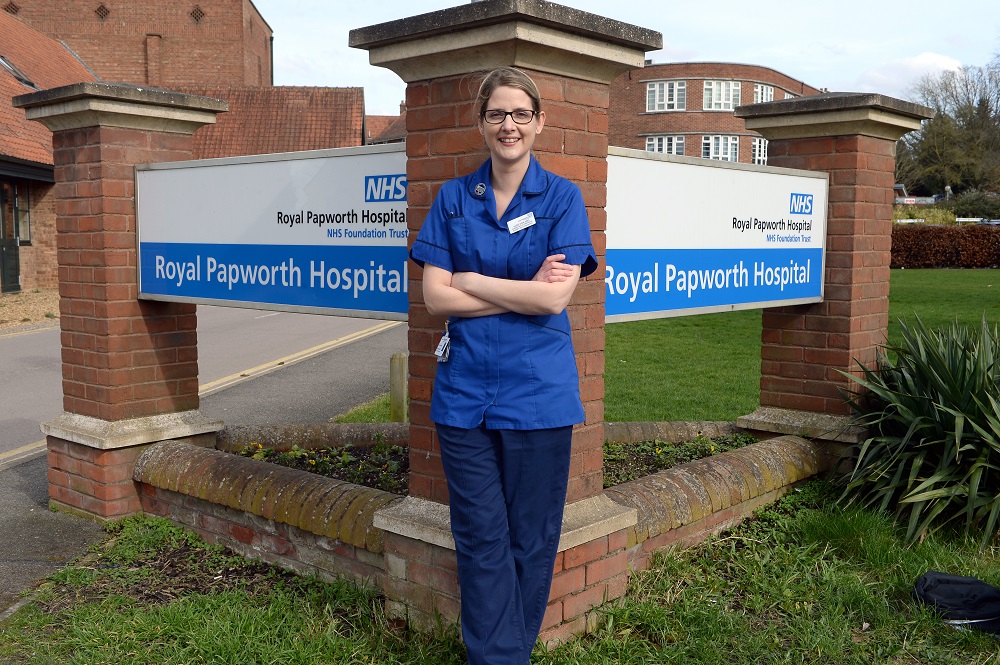 Sadie loves her job at the Royal Papworth Hospital in Cambridgeshire
Sadie loves her job at the Royal Papworth Hospital in Cambridgeshire
Sadie was recently involved in a record five transplants in 36 hours. “I was on-call when my pager went off with the offers,” says Sadie. “We look for matches through our database, checking blood and tissue type and then make various calls to the recipient, surgeon and the organ donation team. On this particular occasion it was as if all the stars aligned and we were able to find five suitable matches, which is a very rare occurrence.”
On this occasion it was as if all the stars aligned and we were able to find five suitable matches
Timing is crucial to limit how long the organs are without a blood supply. This means liaising with the organ donation nurses at the other end, making sure the recipient is ready and relaying information back to the surgeons. “Adrenaline helps,” Sadie says. “It’s a very busy time when a match is found and the day just whips by. When a transplant is set to go ahead and someone is taken to theatre, we always say ‘see you later’, not ‘goodbye’ and you do get choked up as it’s very emotional for all involved.
“When a transplant is successful, it transforms lives. We’ve seen people get married, have babies, and ultimately, we’re carrying out the wishes of the donor. It’s a very unique and privileged job, seeing people at the best and worst of times. We see people through their whole journey and it’s a very special relationship, like a family.”
Eric Scoones was fit and healthy until a genetic condition caused heart failure leading to a heart transplant aged 58
“I used to run marathons, but all of a sudden it became a challenge to even climb the stairs. Finding out I needed a heart transplant was hard, but coming to terms with this being my only option, I felt positive. A year passed and I struggled to do anything. I was admitted to the Royal Papworth Hospital and put on the urgent transplant list, where I spent the next two months.
The care of the nurses was fantastic, they were very empathetic and thoughtful. It’s very easy to feel negative, but they made such a difference to my time there.
I was in bed around 2am when I saw a nurse with a torch coming towards me. “Eric,” she said, “we think we’ve found you a heart.” Once all the necessary checks were carried out, there was a quick kiss with my wife and I was taken to surgery. I honestly didn’t feel scared, I was very hopeful. This was my only chance.
Twenty-two hours later I woke up and felt better straight away. I barely had a pulse before and now I could feel this heart beating. I couldn’t sleep as it felt so strange.
Six years on, I can do so much more. I can travel and have had six grandchildren born since then. I’m so grateful to all the nursing staff as I know I recovered faster thanks to them.”
Members have their say
The RCN has published its new position on consent for organ and tissue donation after death, stating qualified support for an opt-out system. This means the RCN supports an opt-out system of consent so long as certain safeguards, supports and resources are in place. These include limiting the opt-out to adults, trained professionals discussing donation with families, the need for sustained awareness campaigns and a call to review any opt-out on the basis of an impact evaluation.
This follows a UK-wide consultation with members. A significant number responded to an online survey, with 71% broadly in favour of an opt-out system. The results were reviewed by the RCN Professional Nursing Committee before agreeing the new position.
Committee Chair Melanie Johnson says: “The matter of organ and tissue donation is a sensitive and complex one, but the response from RCN members clearly supports the move to an opt-out system with conditions attached. The survey shows our members understand the issues at play in attempts to increase donations, and with almost 90% saying we need more donors there is still much to do. I would like to thank every member who participated in shaping this RCN position.”
Find out more about the RCN's position on consent for organ and tissue donation after death.


